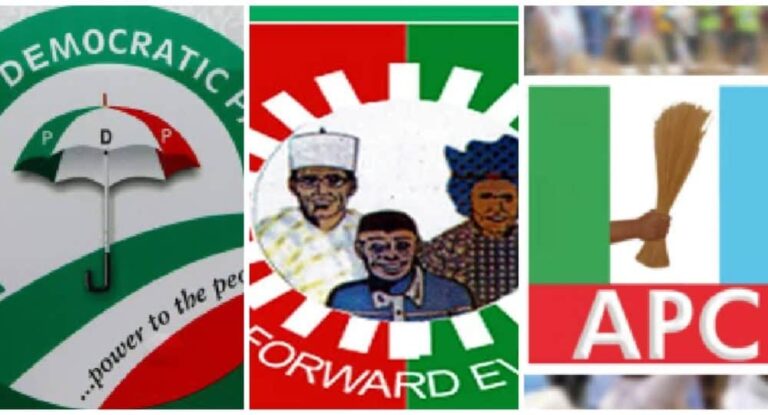
Nigeria’s political landscape has been rocked by a wave of suspensions and expulsions of members from major political parties, including the Peoples Democratic Party (PDP), Labour Party (LP), and All Progressives Congress (APC).
This comes after accusations of anti-party activities during the governorship and presidential elections, leading to a crisis in some political parties and negatively impacting the country’s political structure.
In an interview with Institutional Reforms Advocate Segun Awosanya, also known as Segalink, OsunDaily News correspondents learned that suspensions and expulsions have become commonplace in Nigerian politics following the 2023 general election. Awosanya attributed this trend to the lack of integrity and discipline among political leaders.
He further explained that political parties have resorted to suspending or expelling members who engage in unethical acts of desperation to curb the negative impact on the party’s reputation.
Speaking on the reason for the increase in suspension and expulsion in political parties across the country, he said, “The wave of suspensions and expulsions across legacy political parties in Nigeria is due to the obvious indiscipline and dearth of the integrity of our political leaders.
“We must also consider the deliberate weaponization of ignorance of the masses, and the galvanization of parochial minds of easy excitation, that numbs the accountability mechanism that rests within the electorates.
“Political parties have a duty to act on the provisions of their constitution as the last resort and maintain sanity within their structures to curb the unethical acts of desperation of political opportunists that may be injurious to the tenets of the political party and the country’s political structure as a whole.”
The Impact Of Suspension And Expulsion Of Politicians On Nigeria’s Political Structure
Segalink noted that it will be difficult for political parties and politicians to maintain the rule of law if they don’t regard their party constitution.
According to Segalink, politics void of ideology can indeed be chaotic in a burgeoning democracy, adding that it lacks values that guide decision-making and policy implementation.
Segalink speaking on the effect of suspension, expulsion and defection on Nigeria’s political structure said, “How can any political party win public trust when they can hardly govern themselves with attributes of values such as; openness, transparency, accountability, integrity and fairness? How would they bridge the intergenerational gap and maintain the rule of law if they can hardly regard their party constitution?
“Politicians in Nigeria mostly see themselves as Democrats, even the ones with conservative ideologies and the ideological lines once experienced during the two-party system (SDP and NRC) era, are now completely blurred. All it takes for a politician to decamp is interest and opportunity and this will be activated with impunity.
“Politics void of ideology can indeed be chaotic in a burgeoning democracy like ours, as it lacks a clear set of principles or values that guide decision-making and policy implementation. In the absence of an ideology, political decisions may be driven by personal interests, short-term gains, or popular opinion, rather than a coherent and consistent set of beliefs.
“This can lead to inconsistency and unpredictability in policy-making, as well as a lack of accountability and transparency. Without a clear ideological framework, it can be difficult for voters to understand the rationale behind political decisions, or to hold politicians accountable for their actions.
“As we can attest to this based on the preponderance of evidence in our political clime, politics void of ideology may be more susceptible to manipulation and demagoguery, as politicians may rely on emotional appeals and populist rhetoric to win support, rather than presenting a coherent and reasoned argument for their policies.
“While ideology is not a panacea for all political problems, it can provide a useful framework for guiding decision-making and ensuring consistency, transparency, and accountability in politics.”


